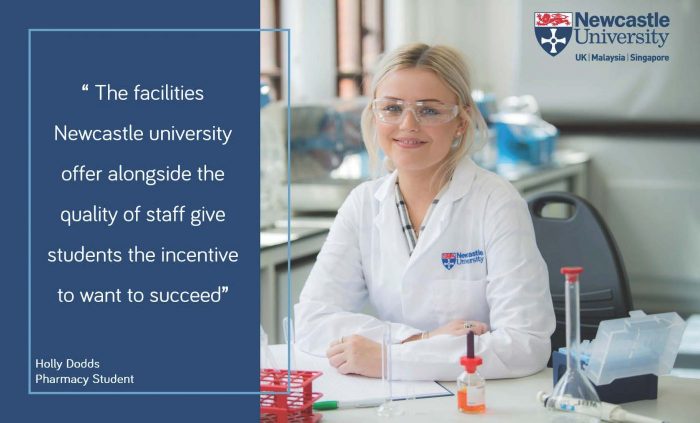Research Informed Teaching
The concept of research informed teaching has become a popular one with a variety of ways in which research is either presented to or enacted by students1. The involvement of students in research is particularly important for the British research intensive universities that are looking to differentiate their offering to students paying ever escalating fees for their undergraduate and masters programmes.
However, an undergraduate or Masters students’ expectations and experience is probably quite different from the realities of research for those who conduct the work on a daily basis. Bioscience students are lured to degree programmes by the latest buzz-words of technological advance: stem cells, proteomics, Nanomedicine etc. The early stages of the students’ programmes build these expectations further as academic staff provide lectures on recent advances. The staff delivering this information tend to be either teaching lecturers, who have taken a sideways step away from research or well established academics who are likely to have developed and used these technologies, but now have limited time for the hands-on work. It is often a research group’s post docs, PhDs, staff scientists and technicians who are conducting research work as their day to day activity but those individuals are not so likely to interact with the students.
The interaction between the active researchers and the students is not likely be at the early stages of the degree programme. Only as undergraduate students start to engage in projects will they become involved in the research and with the researchers. Understandably, the students will be keen to get their hands on the equipment and build new skills. The length of time for projects and the desire to fulfil this requirement for practical experience will often mean parachuting the students directly into sample preparation and data collection. Those parts of the research process are only a part of the work and in many areas automation means it is diminishing part.
Delivering a Truer Picture of Research
Technological advances mean large amounts of data are collected by complex machines meaning a researcher’s time is often taken up with planning and data analysis. Recognition that there have been failures in the robustness and reproducibility of research also means researchers are increasingly asked to focus on getting their processes right. Time has to be spent on data management planning, ethical approval and recording the meta-data that accompanies new protocols and datasets. These are the processes that students need to be aware of, every bit as much as the experimental methods. Students should also understand that research can only happen when it is funded and know that much of an academic researcher’s work is obtaining funding to support their projects. Unless we teach all aspects of these processes then the students who do transition to research degrees will not have a fair representation of what life as a researcher or academic is really like.
Teaching Informed Research
In STEM subjects research is scarcely conducted individually, most research is performed in large groups of individuals interconnected in a variety of ways. Although the recognition for first and last author on academic papers might reward the individuals there are usually several people who contribute to the work. The quality of the interaction between those individuals may be critical to the success of a research group and project. Although the transfer of information within groups is far from linear or didactic there are certain expectations that the Group Leaders or Principal Investigators will pass down their vision for the projects, the junior lecturers, research fellows and post docs and PhD student will plan out the research and conducted the procedures with the help support and guidance of staff scientists and technical staff. Those new to the group will be informed by those who are more experienced. This means there is a lot to take in for anyone new to the research group and those looking out for new doctoral students or project students will have a significant task to get those new to the group up-to-steam.
Whatever we call the process: training, continual professional development (CPD) or learning on the job, this is a form of teaching and the standard to which it is performed will have a significant impact on the learner and the productivity of the group. Historically, the expectation has been that those who rise to the top in academic research will be able to impart their knowledge and a new generation of researchers will sink or swim as they learn how the research works. This model becomes less tenable as time passes, it’s unrealistic to expect the Group Leaders to know everything that is required for projects that are increasingly interdisciplinary. It is also unrealistic to hope or expect that everyone will be as good at passing on their skills and knowledge as they are at conducting the work.
Support and guidance for those teaching research
There has been recognition that research students can benefit from training and Development Programmes(2). More general skills development and positive attributes can be delivered effectively outside the research group and researchers will be able to reflect on their own developments and training needs(3). Recognising the need to support academics and researchers with the s guidance they need to be teachers of research has been less obvious. As Professor Stan Taylor suggests we should think of PhD supervision as teaching (4) in doing so we can start to recognise the continuum that occurs between teaching and research and support academics to contribute to both aspects of their role. One area we have recognised as quite deficient was in the formative stages of this passing down of knowledge; Doctoral Students or Early Career Researchers / Post Docs might not be considered the formal supervisors of an undergraduate or Masters’ project students but they do have a significant role in teaching them. While it is commonplace for PhD student lab class demonstrators (Graduate Teaching Assistants) to have to training before teaching, those with an informal role in project supervision do not. We introduced guidance sessions in this area and it has proved popular and helpful not only to PhD students but to staff too.
The potential for positive changes
Engaging undergraduate students with more of the processes in research may help them to get a broader understanding of how research work is undertaken and move their fixation away from the newest techniques. This may also help inform undergraduate students thinking of research masters and doctoral study. Providing this broader engagement with research could involve the PhD students and staff that are active in the day to day work of research. If these PhD students, Early Career Research Staff and Staff Scientists are trained to provide this teaching they will be more experienced and hopefully better in the process of supporting their colleagues and research students as they advance. Changing the expectations of undergraduate and masters’ students so their projects might be longer but encompass a broader view of research processes may help to unburden faculties trying to meet a requirement to offer the technical aspects of research. This broader curriculum for undergraduates may also allow the academics normally involved in teaching a little more time to keep their research interests live. Recognising the range of activity that researchers and teachers get involved in with a greater place for formal recognition of the teaching role that is intrinsic to research (5).
- https://www.heacademy.ac.uk/blog/what-does-research-informed-teaching-look
- https://www.timeshighereducation.com/news/training-schemes-help-improve-phd-outcomes/2007447.article
- https://www.vitae.ac.uk/researchers-professional-development/about-the-vitae-researcher-development-framework
- http://www.ukcge.ac.uk/article/thinking-research-supervision-as-form-teaching-357.aspx
- https://supervision.ukcge.ac.uk/

